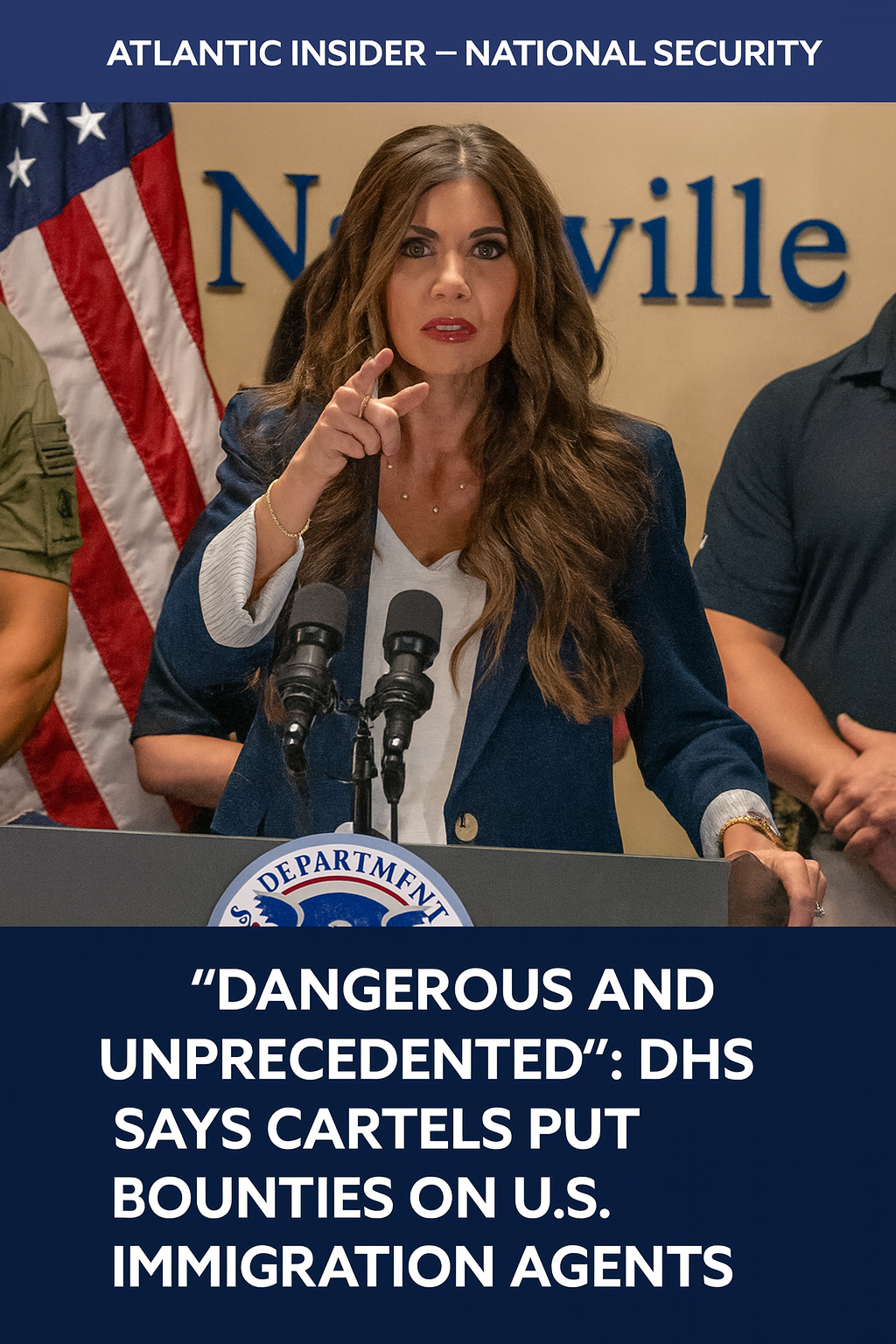Homeland Security Secretary Kristi Noem said that “gangs, cartel members and known terrorist organizations” have placed bounties on federal immigration agents—$10,000 to kill them and $2,000 to kidnap them—while circulating agents’ identifying photos across criminal networks. The comments were made during a televised interview and reported by Newsweek.
Noem characterized the threats as “extremely dangerous” and “unprecedented,” and said protective steps were underway for agents believed to be targeted. While her remarks referenced cartels and foreign terrorist actors, specific groups were not named publicly, and detailed corroborating documents were not released at the time of publication.
Why this matters
If substantiated, formal bounty offers would mark an escalation from opportunistic violence to incentivized targeting of federal personnel. That shift could expand the threat beyond the border, altering the risk calculus for agents operating in major U.S. cities and affecting coordination with local law enforcement.
The remarks also land amid heightened scrutiny of immigration enforcement in cities such as Chicago, where recent confrontations and deployments have drawn both political criticism and public-safety concerns.
What we know—and what we don’t
Confirmed: Public statements from the Homeland Security Secretary asserting that bounties and doxing of agents have occurred.
Unconfirmed specifics: Which groups issued the bounties, the scope of distribution, and the mechanisms of payment or enforcement have not been detailed in public documents.
Operational implications: Expect tighter operational security, protective details for named personnel, and adjustments to field tactics to reduce predictability and exposure.
“They’ve released their pictures… it’s an extremely dangerous situation and unprecedented.” — Secretary Kristi Noem
What to watch next
- Official bulletins: Any DHS/CBP/ICE safety advisories or redacted assessments that clarify attribution and scope.
- City–federal posture: Whether visible federal deployments expand or are adjusted in response to local pushback and evolving threat assessments.
- Legal actions: Potential indictments related to organized doxing, stalking, or conspiracy tied to threats against agents.
%20(4).png)






.png)
%20(12).png)

